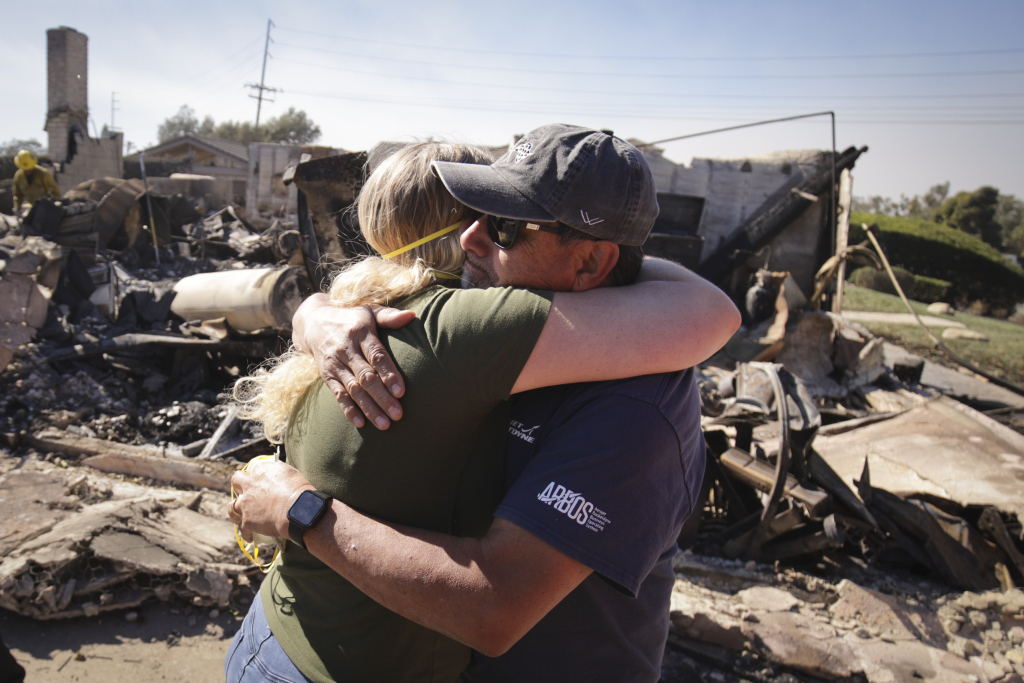Firefighters in Southern California have made significant progress in controlling the Mountain Fire, which has impacted Ventura County since it began on Wednesday morning. The fire has already destroyed 132 structures, most of which are homes, driven by strong Santa Ana winds that started to weaken late Thursday. This change has allowed containment efforts to improve.
Returning Residents Confront Devastation

One of the returning residents, Joey Parish, discovered only the steel frame left of his long-time home in Camarillo Heights. “It’s tough, it’s really tough to know how to process the emotions,” Parish said in an interview with KNBC-TV. He and his wife had evacuated with just their cat and minimal belongings. “My cellphone, and not even a charger, and no toothbrush—nothing,” he added.
Status of the Fire
As of Friday morning, the Mountain Fire had expanded to cover approximately 32 square miles (around 83 square kilometers) and was 7% contained. Evacuation orders remained in place for about 10,000 people, with the fire still posing a threat to 3,500 structures in residential, agricultural, and ranch areas.
At least 88 additional structures were damaged, though officials have not confirmed the type of damage—whether it was due to flames, smoke, or water. The cause of the fire remains undetermined.
Firefighting Efforts and Challenges
Crews supported by water-dropping helicopters concentrated on protecting hillside homes near the city of Santa Paula, which is home to over 30,000 residents. The fire’s progress had been bolstered by the notorious Santa Ana winds, known for their dry, warm gusts blowing from inland to the coast, heightening fire risks.
Warnings and Impacts
Red flag warnings for high fire danger were lifted for most areas except the Santa Susana Mountains, where warnings were set to expire by late Friday morning. Though the winds have lessened, the National Weather Service indicated that temperatures would rise, reaching the lower 80s.
An air quality alert was in effect from Friday morning to Saturday afternoon due to fine particle pollution from the smoke. School closures affected more than a dozen districts in Ventura County, disrupting education and community activities.
Historical Context and Future Risks
The Mountain Fire is the latest in a region that has faced some of California’s most destructive wildfires. It rapidly grew from under half a square mile (1.2 square kilometers) to over 16 square miles (41 square kilometers) within hours on Wednesday. The area previously experienced devastating blazes such as the 2018 Woolsey Fire, which killed three people and destroyed 1,600 homes, and the 2017 Thomas Fire, which damaged over a thousand structures.
Governor Gavin Newsom declared a state of emergency in Ventura County, emphasizing the urgent need for safety and assistance. In recent years, utilities have preemptively powered down equipment during high winds to prevent wildfires sparked by electrical lines. Southern California Edison confirmed that nearly 70,000 customers in five counties experienced power shutdowns due to the heightened risk, although it remains unclear if this included the area where the Mountain Fire originated.